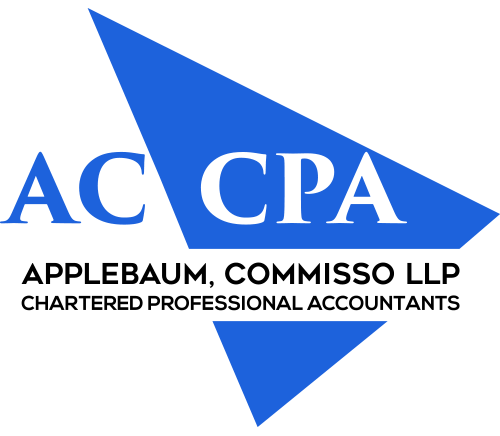
Corporate Tax information everyone should know
Small business deduction:
The effective tax rate for a corporation that is defined as a Canadian Controlled Private Corporation in Ontario is 12.2% on the first $500,000 of active business income for 2024. Above that amount is 26.5%.
Capital Gains exemption:
If you own shares in a Qualified Small business corporation you may utilized a $971,190 (2023) capital gains exemption if you sell your qualified shares. The result of the exemption is you get to sell your shares tax free on the first $971,190 of the capital gain. For the shares to qualify they must meet the following tests:
- At the time of determination, the shares must be of a CCPC which means the company operates in Canada
- In the last 2 years prior to sale the shares were not owned by anyone other than the individual, spouse, common law partner or related partnership
- In the last 2 year more that 50% of the fair market value of the assets were attributable to assets held in an active business carried on primarily in Canada
- At the time of sale substantially all (90%) of the assets held are active assets.
Note: Although it is tax free you may be required to pay personal minimum tax which will be carried forward and used to reduce your personal tax liability in the future.
Tax rates:
There has been a change in the tax rates charged on eligible and non-eligible dividends. This results in perfect integration between taking salary of dividends. The main benefit of having a corporation is tax deferral. i.e. you only pay tax of 12.2% on the first $500k in income and 26.5% on anything above.
Government audit areas:
In the past few years the government has begun to focus on certain areas. Below is a summary of them:
- Personal use of automobile held in a corporation: Could result in double tax situation given government only allows you to capitalize $30,000 for automobile and the employee must pay a standby charge on the FMV of the vehicle. Also CRA has been requesting travel logs of business use of vehicle. If you drive to work and home every day then that would be considered personal use. Keep expensive cars out of the company.
- Employee vs. Consultant. This is determined based on different factors i.e. who controls work hours, does the consultant have more than one client, are they provided with an office. If deemed to be an employee your company can be responsible for the individuals withholding taxes. It is recommended that all consultants you do business with be incorporated to prevent the liability. Note: The government can retroactively assess if deemed an employee.
- Personal service business. Whether the person is incorporated or appears to be just and employee. Number of employees will be a factor. This is based on total number of clients.
- Other contentious areas:
- Meals and entertainment: Make sure you put the name of the client on the back of the receipt to keep track
- Golf membership dues: Are non-deductible and could become a taxable benefit to the recipient.
Corporate Tax planning options to consider:
Company medical expenses and cost-plus options:
You should consider establishing a medical benefits plan in your corporation to allow you to deduct a reasonable amount of 3 medical expenses against business income. Once established you can also utilize the cost plus option for one-time expenses that are not normally covered by a standard medical plan. i.e. orthodontics.
Life insurance held in a corporation:
There are benefits to holding life insurance in a corporation. Although in most cases the premiums will not be deductible for tax purposes, please be aware that you will be using pre-taxed money to pay your premiums. When the person dies the life insurance policy can come out of the corporation tax free. There are a few things to consider so please contact someone at Applebaum, Commisso LLP before executing this plan.
Dividend income to a child or spouse:
If you have a child not earning any income or very little income you should consider paying a dividend through a trust to utilize their personal income tax credits. A person with no other income can receive a $50,000 of eligible dividends tax free (note that a loan from the parent needs to be made to the trust with an interest component). Please contact Applebaum, Commisso about setting up a family trust through a corporate reorganization.
Employment Insurance (EI) paid on majority shareholder wages:
The owner of a corporation is exempt from paying himself or family members (wife and children) EI which can result in a significant savings to the individual and company.
Tax credits and government incentive plans available:
Scientific Research and Experimental Development (SRED) Tax incentive program:
A Canadian-controlled private corporation (CCPC) can earn an investment tax credit of 35% up to $3 million of qualified expenditures for SR&ED carried out in Canada, and 20% on any excess amount. Other Canadian corporations, proprietorships, partnerships, and trusts can earn a tax credit of 20% of qualified expenditures carried in Canada.
Types of SR&ED that would qualify:
- Experimental development
- Applied research
- Basic research
- Support work
If you think you may qualify please contact Applebaum, Commisso as we would be happy to assist you in getting the maximum claim.
Government hiring subsidies and credits:
The federal budget created a hiring credit for small business, a credit intended to stimulate new employment and support small business. The credit will automatically be given based on CRA’s calculation and no application is required.
The credit is a relief of up to $1,000 relating to EI premiums paid.
In-addition there is a Co-operative education tax credit available to employers who hire students enrolled in co-operative education program at an Ontario University or College. $ 3,000 is the max credit available.
Film Television and Media Tax credits:
Tax credits are available are for such services and computer animation, film, sound recording and other media related in devours.
Wage subsidies:
Available to an employer who hire a broad range of employees. See link for more information:
Wage subsidies and other assistance programs – Canada.ca
Other tax information to be aware of:
Penalties on late filings:
The penalty for late filed T2 returns is the total of:
- 5% of unpaid tax as of the due date of the return; and
- 1% of the unpaid tax as of the due date of the return for each complete month that the return is late (max 12%)
Penalty is doubled in both regards if there was a previous offence in the last 3 years and there is a formal demand from CRA for filing the second return. Also the person or corporation is guilty of an offense under the law and may be required to pay an additional fine of 1k to a max of 25k and possible imprisonment.
Interest is also charge at the prescribed rates on the penalties which commences on the due date of the return.
Installment payments:
Installments are required for small business corporations on a quarterly basis. Final payment of tax is due three months after year end. (If previous taxation year taxable income was greater than the business limit then the corporation is required to pay tax (final installment) within 2 months of year-end).
Interest is charged at the prescribed rates which are subject to daily compounding. (Client has option to early pay the following installment to earn interest from the government which can be used to offset against interest owing from late payments)
Note: Interest and penalties are not deductible relating to income taxes.
Precribed rates for the 3rd quarter of 2024:
January to March – Base rate 6%
Refunds: 6%Personal/8%Corp
Debts: 10%
Tax update:
CPP changes:
If you are 65 and working you will now have to contribute to CPP. If you are 66-70, you can elect to stop contributing to CPP if you are still working. You must submit the form (CPT30) one month before you want to stop contributing to CPP.
Employers are required to make CPP contributions for employees 65 and over unless the employee utilizes the elections detailed above.
HST things to consider:
Only 50% of HST related to meals and entertainment can be claimed on your HST return as an ITC.
If you are a yearly filer and owed HST in the prior year you are required to pay installments to avoid interest and penalties on balance owing in the following year.
Short term rentals (airBnb) and rentals of property for normally less than one month:
Rule now require all shot term rentals to charge and remit HST regardless on meeting the $30,000 threshold. Normally if the operator is using a third party operator they will be doing the remitting on their behalf if the property owner is not registered for HST.
Intercompany management and rental fees:
To avoid charging HST on intercompany management fees or rent between companies at least 90% of one corporation has to be owned by the other corporation or a sub of the other corporation. It is important to remember that the election is not available where two corporation are simply owned by the same individual. NOTE: Form RC4616 needs to be completed and filed with CRA.
Recent Posts
Looking to make smarter financial decisions for your growing business?
We invite you to contact us today for a free consultation to learn how a partnership with Applebaum, Commisso will benefit you.

